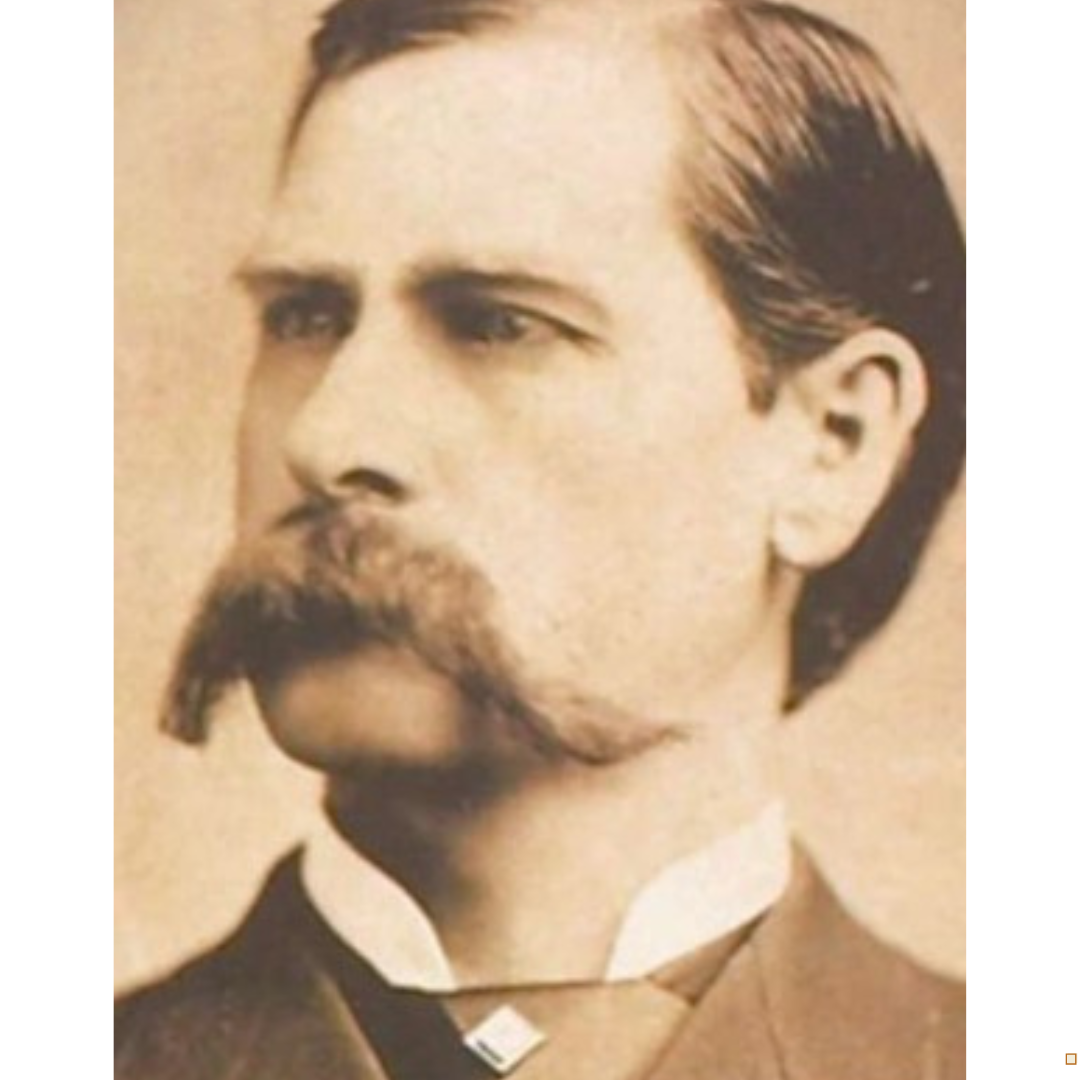
Wyatt Earp: Lawman, Gambler, and American Legend of the Frontier
In the rugged and volatile landscape of the American frontier, few names have endured with the same mythic resonance as Wyatt Earp. Lawman, gambler, and occasional outlaw himself, Earp is remembered not only for his role in the infamous Gunfight at the O.K. Corral but also for his relentless pursuit of justice in lawless towns. His life straddled the line between order and chaos, forging a legacy that continues to shape the image of the American West.
Early Life on the Frontier
Wyatt Berry Stapp Earp was born on March 19, 1848, in Monmouth, Illinois. The Earp family, led by patriarch Nicholas Earp, moved frequently as they sought better prospects across the Midwest and eventually into California. These constant migrations exposed Wyatt to the unpredictable conditions of frontier life from a young age. He worked various jobs in his early years—teamster, railroad worker, and even a buffalo hunter—before gravitating toward law enforcement in the boomtowns of the West.
Dodge City and the Rise of a Lawman
Earp’s first notable law enforcement role came in Wichita, Kansas, in the early 1870s, but it was in Dodge City—then a notorious cattle town teeming with saloons, brothels, and violence—that he made a name for himself. Alongside fellow peace officers like Bat Masterson, Wyatt Earp earned a reputation for taming disorder with a cool head and a steady hand. He was respected not only for his marksmanship but also for his composure in high-stakes situations.
His time in Dodge City introduced him to a network of equally formidable frontier characters, many of whom would play crucial roles in the next chapter of his life. This included Doc Holliday, a deadly gambler and dentist with whom Earp would later forge a legendary friendship.
Tombstone and the Gunfight at the O.K. Corral
In 1879, Wyatt and his brothers Virgil and Morgan headed west to the silver boomtown of Tombstone, Arizona Territory. There, they hoped to find fortune—not necessarily through mining, but through real estate, gambling, and law enforcement.
Tombstone was a powder keg of lawlessness, with tensions running high between the Earp brothers (aligned with law-and-order businessmen) and a loose group of outlaws and cowboys led by Ike Clanton and the McLaury brothers. The culmination of these rivalries erupted on October 26, 1881, in the narrow lot behind the O.K. Corral.
The shootout, which lasted barely 30 seconds, left three outlaws dead and cemented Wyatt Earp's place in frontier history. Though it was Virgil who held the legal authority as Deputy U.S. Marshal, it was Wyatt who emerged from the gunfight with an almost mythological status.
The event made headlines across the nation and has been immortalized in books, films, and folklore. For many, this moment represents the quintessential showdown between law and lawlessness, and Wyatt Earp the idealized Gunslinger of frontier justice.
👉 Gunslinger
Vendetta Ride and Personal Tragedy
The aftermath of the O.K. Corral did not bring peace. Instead, it initiated a brutal cycle of revenge. Virgil Earp was ambushed and permanently injured, and Morgan Earp was assassinated while playing billiards. Enraged and disillusioned by the failure of the courts to deliver justice, Wyatt Earp led a posse on what became known as the Earp Vendetta Ride, tracking down and killing several of the men believed responsible.
This extra-legal campaign further complicated Earp’s legacy—some hailed him as a fearless lawman; others condemned him as a vigilante.
A Gambler and Entrepreneur
While his law enforcement exploits capture most of the public imagination, Earp was also a gambler and businessman. He owned saloons, invested in mining ventures, and even refereed early boxing matches. He lived in several frontier towns—Tombstone, Dodge City, Deadwood, San Francisco, and eventually Los Angeles—always straddling the line between fortune-seeker and enforcer of order.
Despite dabbling in many ventures, success often eluded him. Financial hardship, legal battles, and a tarnished reputation followed him into his later years. Yet, he continued to seek opportunity wherever the frontier called.
The Legacy of Wyatt Earp
Wyatt Earp died in Los Angeles on January 13, 1929, at the age of 80. He lived long enough to witness the early days of Hollywood, even consulting on silent Western films in which his own life served as inspiration. Ironically, he died virtually unknown to the general public, but that would change shortly after his death.
In the 1930s and 1940s, a wave of books and films began to mythologize Earp as the quintessential frontier hero. Portrayals by actors like Henry Fonda, Burt Lancaster, Kurt Russell, and Kevin Costner cemented his image in American culture. Today, Earp is both celebrated and critiqued—seen by some as a symbol of rough justice, and by others as a flawed man shaped by violent times.
Regardless of the interpretation, his life provides a window into the complexities of frontier justice, the blurred lines between lawmen and outlaws, and the gamble inherent in seeking order in a lawless land.
A Brew Worthy of a Legend
At Frontier Coffee Roasters, we pay homage to these enduring characters of the Old West through carefully sourced, small-batch coffee that celebrates the spirit of the frontier. Wyatt Earp’s world was one of high stakes, long rides, and long nights—conditions that demand a strong, flavorful brew.
Our Mexican Chiapas coffee, grown in the highlands of southern Mexico, captures the earthy grit and subtle complexity worthy of frontier legends. Smooth, balanced, and rich in character, it’s the perfect companion for your own adventures—whether you're riding the range or taming your inbox.
👉 Explore our Mexican Chiapas Coffee Hub for more stories, brewing tips, and origin details.

